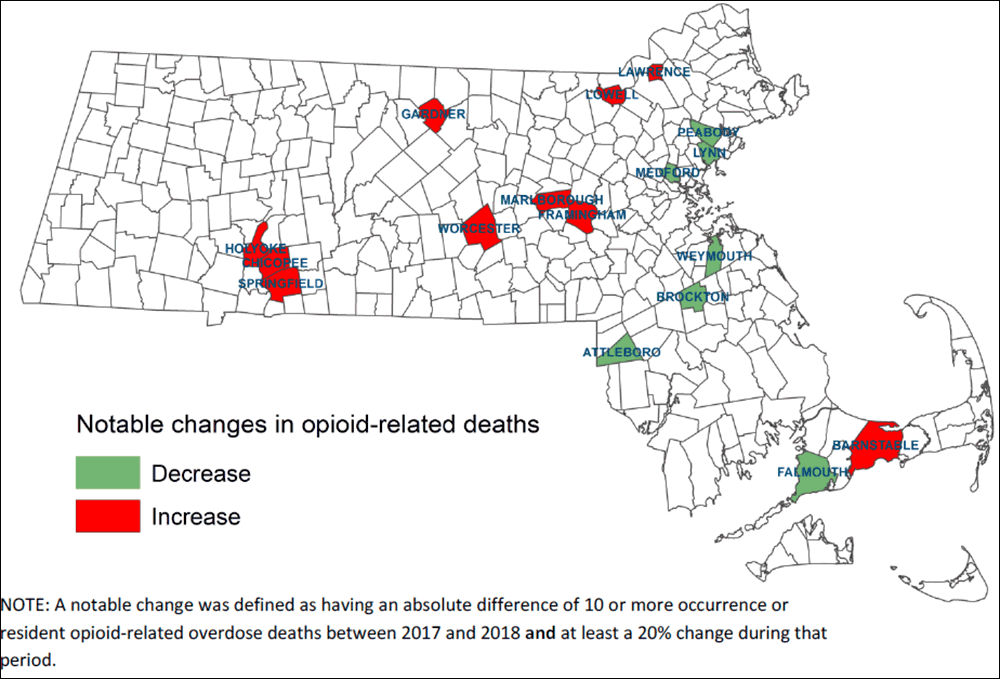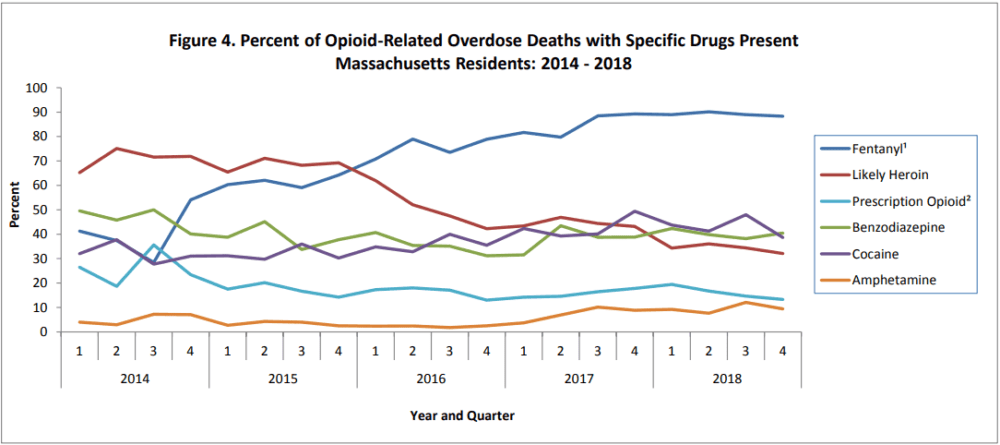Advertisement
New Concerns Emerge In State Overdose Data: Women, Coke, Meth And Death Clusters
Massachusetts is reporting a 4% decline in opioid-related overdose deaths from 2016 to 2018, according to new state data released Wednesday. There were 2,100 fatalities in 2016, and an estimated 2,050 in 2017 and 2,033 last year.
But the preliminary numbers for the first quarter of 2019 suggest a troubling rise.

And there are pockets of concern.
While Attleboro, Brockton and Weymouth, among others, reported a notable decrease in fatal overdoses last year, Framingham, Lawrence, Lowell and Springfield were among the communities that saw a significant increase.

"We share this information so that individual communities can see not only where they need to have more impact, but where are there areas and clusters where there may be best practices that we can learn from," said Monica Bharel, the state public health commissioner.
There are some other new worries about the epidemic: women, and meth and cocaine users.
Deaths among women of all races increased from 2017 to 2018. Fatal overdoses among men of all races decreased over the year. It's the first time deaths are rising for women but are stable for men. (Still, 72% of fatal overdoses are men.)
Fentanyl continues to cause severe harm for drug users. It was present in 89% of deaths in 2018. Cocaine was present in 39% of fatal overdoses and meth — a rising threat on the street — was in 9%.

“While we remain encouraged that opioid-related overdose deaths have declined over the last two years, the epidemic continues to present very real challenges across Massachusetts that are made worse by the presence of fentanyl, cocaine and amphetamines,” Gov. Charlie Baker said in a statement.
Baker says he's working with the Legislature to continue to increase funding for prevention, intervention, treatment and recovery services in the budget lawmakers are negotiating now on Beacon Hill. The Baker administration says it has added $147 million for these services since 2015.
